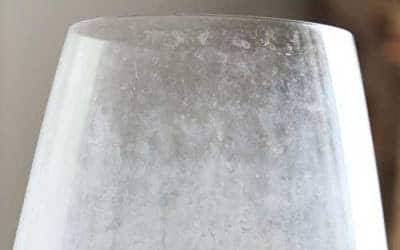It’s no secret, Utah has hard water. But do you know just how hard your water is, and what steps to take to alleviate seeing spots on dishes, showers and plumbing fixtures? Did you know the effects of hard water extend beyond just aesthetics, impacting skin health, hair, and the longevity of household appliances. In this blog we are offering a few suggestions to combat the woes of hard water and ensure a hard water spot-free existence while living in our mineral rich state.
Understanding Hard Water Levels
Firstly, let’s delve into what exactly hard water is and why it’s prevalent in Utah. Hard water contains high concentrations of minerals like calcium and magnesium. As water travels through the ground in Utah, it naturally picks up the abundant minerals that make their way into our drinking water. The degree of hardness varies across parts of Utah, but generally you can expect a hard water ranking of “hard” (like in Salt Lake where we see a range of 12 – 15 grains per gallon) to “extremely hard” water levels (like in Eagle Mountain where it’s common to see 18 – 33 grains per gallon).
To find out how hard your water actually is you can purchase an inexpensive hard water test kit (usually available for under $20), or have one of our friendly plumbers provide you with a complimentary plumbing inspection (valid for the month of March 2024) that includes a free hard water test.
Effects of Hard Water
Living with hard water poses several challenges. One of the most noticeable issues is the formation of spots and scale on dishes, glassware, and fixtures. These mineral deposits can be stubborn and difficult to remove, leaving surfaces looking dull and unsightly.
Hard water minerals can destroy rubber gaskets on appliances and fixtures. Imagine turning your faucet on and off with sand particles embedded within and you’ll have an idea of how these minerals can erode the gaskets and seals of your appliances and shorten their lifespan.
Hard water isn’t just a nuisance for your dishes and appliances; it can also affect your hair and skin. Imagine the mineral spots you see on your dishes but on your skin. Of course this is an extreme example because as we towel dry, the excess water and many of the minerals are removed.
But even so, the minerals in hard water can strip away natural oils, leaving skin feeling dry, itchy, and irritated. For those with sensitive skin conditions like eczema or dermatitis, the effects of hard water can be particularly bothersome. Homeowners with softened water usually notice their hair feeling lighter and fuller, and their skin feeling less dry.
Did you know softened water makes detergents and soaps more effective–saving you money throughout the year? Soaps used in hard water have to overcome the calcium and magnesium minerals before a sufficient lather can be created. Softened water is already conditioned and doesn’t need to do this, so you’ll likely find that one third to half the amount of soap and detergent is sufficient.
Tips for Dealing with Hard Water Spots
So, what can you do to combat the effects of hard water and maintain a spot-free home?
- Invest in a Water Softener: A water softener is your first line of defense against hard water. These systems work by replacing calcium and magnesium ions with sodium ions, effectively softening the water and reducing mineral buildup. Water softeners save money in the long run for those with extremely hard water by helping your appliances last longer.
- Use Vinegar: White vinegar is a versatile solution for tackling hard water spots. Mix equal parts vinegar and water in a spray bottle and use it to clean the mineral spots from glassware, shower doors, and faucets. The acidic nature of vinegar helps dissolve mineral deposits, leaving surfaces sparkling clean.
- Install a Water Filtration System: In addition to a water softener, consider installing a water filtration system to further improve water quality. Filtration systems can remove impurities and contaminants, ensuring cleaner and healthier water for your household.
- Dry Surfaces Thoroughly: To prevent water spots, make sure to dry surfaces thoroughly after washing. Soft cloths for dishes and faucets, and squeegees for shower doors can help remove excess moisture and prevent mineral buildup.
- Use Rinse Aids:In your dishwasher, use rinse aids specifically designed to combat hard water. These products help prevent spots and streaks on dishes by promoting faster drying and reducing mineral residue.
- Moisturize Skin: Combat the drying effects of hard water on your skin by using a moisturizing body wash and applying a rich moisturizer after bathing. Look for products that contain ingredients like hyaluronic acid or ceramides to help restore and protect the skin’s natural barrier.
By implementing these tips, you can effectively manage the challenges of living with hard water in Utah. From spot-free dishes to healthier skin and longer-lasting appliances, taking proactive measures against hard water can greatly improve your quality of life in our mineral rich state.

